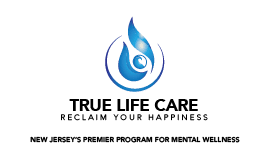This article discusses medication assisted treatment centers. These facilities combine evidence-based medications with therapy to address substance misuse. To learn more about medication assisted treatment in New Jersey, contact our admission office for more informations.
Medication assisted treatment (MAT) centers offer an effective treatment option for people with substance use disorders. They provide comprehensive care.
As specialized facilities, they have unique treatment options.1 These centers use a combination of medications approved by the Food and Drug Administration (FDA). They combine these medications with counseling and behavioral therapies.

The medications used in medication assisted treatment help reduce withdrawal symptoms. This helps to stabilize brain chemistry. Meanwhile, the program’s therapy components address the psychological and behavioral aspects of addiction.
Medication assisted treatment centers differ from traditional addiction treatment centers in various ways. Primarily, they use different approaches to manage substance use disorders.
Traditional centers focus on abstinence-based approaches and counseling alone. Medication assisted treatment centers use medications as a part of the treatment process.
Medication assisted treatment centers provide a more comprehensive and holistic approach to addiction treatment. They work by addressing both the physical and psychological aspects of addiction.
The medication assisted treatment approach utilizes several types of medications. Treatment is tailored to each individual’s specific needs and substance use disorder. Qualified healthcare professionals prescribe these medications.
Importantly, the medications aren’t used by themselves. They are combined with counseling and behavioral therapies. This combination forms the core of medication assisted treatment.
Although different medications may be used, the three medications most often used in medication assisted treatment are:
Healthcare providers prescribe this medication for opioid addiction. It helps reduce withdrawal symptoms and cravings.
This works by acting on the same receptors in the brain as opioids but in a controlled manner. Specialized clinics dispense methadone each day.2
Buprenorphine is another medication used for opioid addiction. It is a partial opioid agonist, meaning it activates the opioid receptors in the brain but less than full opioids. This reduces cravings and withdrawal symptoms.3
A qualified healthcare provider or physician can prescribe buprenorphine in an office-based setting.
Unlike methadone and buprenorphine, naltrexone is an opioid antagonist. It blocks the opioid receptors in the brain. This prevents the euphoric effects of opioids.
Naltrexone treats both opioid and alcohol addiction. It is available in pill form or as a long-acting injection.
Medication assisted treatment centers help patients address many different aspects of substance use disorder. This includes physiological, psychological, and behavioral aspects.
Here’s how medication assisted treatment aids in the recovery process:
It is important to note that medication is part of comprehensive treatment plans at medication assisted treatment centers.
These plans include counseling, therapy, and support services. Together, medications and therapy offer a holistic approach to recovery.
Admission requirements for medication assisted treatment centers may vary. This depends on the specific facility and the type of medication prescribed there. Despite this, there are some common factors when determining who is eligible for treatment.
Healthcare professionals gather information to determine whether medication assisted treatment is appropriate. If the patient is eligible, they can enroll in the program. Key eligibility factors include:
The patient must have a substance use disorder diagnosis. This includes disorders such as opioid or alcohol addiction. Professional diagnosis assesses the nature and severity of the substance use disorder.
A medical evaluation is often required to assess the individual’s health. This includes any physical conditions that may impact the recovery treatment plan. The patient may complete a physical examination, a review of medical history, and tests.
Different medications used in medication assisted treatment centers have different eligibility criteria. Healthcare providers can determine which treatment option is best for a person.
For example, specialized clinics offer methadone for treatment. Individuals may need to meet certain criteria to receive this medication. This includes such as a history of opioid addiction.
Buprenorphine prescriptions can come from office-based settings. Still, healthcare providers must have the necessary certification to prescribe it.
Medication assisted treatment centers may check an individual’s readiness for treatment. They want to see if a person is motivated, ready, and committed to enter recovery.
This assessment helps ensure that individuals understand the treatment process. It also helps ensure individuals will be able to follow the therapy requirements. This means adhering to their medications.
Medication assisted treatment centers often have specific program rules and guidelines. Compliance with these program rules is a prerequisite for admission and ongoing treatment.
These rules often include:
Medication-assisted treatment (MAT) centers are crucial in addressing various substance use disorders.
Initially designed to combat opioid addiction, medication assisted treatment centers evolved to include the treatment of other substance use disorders.
The following substance use disorders may respond to medication assisted treatment:
Medication assisted treatment centers may have specific protocols and eligibility criteria depending on the substance being treated.
For example, different types of medications can be helpful in recovery from different types of substances.
Each substance use disorder requires a tailored approach. Professionals at medication assisted treatment centers are well-versed in determining the right program. They will work with each patient to make a tailored treatment plan for the substance(s) used.
People should first consult a healthcare provider to assess whether medication-assisted treatment is a good fit. Guidance from healthcare professionals empowers people to make informed decisions about medication assisted treatment centers.
The length of stay at medication assisted treatment centers can vary. This depends on several factors. This includes the individual’s specific needs, treatment progress, and the treatment center’s policies.
Here are some considerations:
In addition to the medication, treatment usually involves counseling and therapy. This works to enhance the treatment outcome.
Overall, the length of stay at medication assisted treatment centers matches the individual’s needs and goals.
Regular assessments and discussions with healthcare professionals help determine the right treatment. This includes the duration of stay and transition plans.
Medication assisted treatment centers offer a range of services to individuals.4 These services address the complex needs of individuals and promote comprehensive healing.
Here are some common services provided:
Medication assisted treatment centers specialize in the use of medications. They are specialized for offering treatment through medication as well as managing medications.
Healthcare professionals assess and prescribe appropriate medications. This ensures optimal dosages and regular monitoring of their effectiveness.
Medication assisted treatment centers provide individual and group counseling sessions led by trained professionals. The sessions aim to address the psychological and behavioral aspects of addiction.
This helps individuals:
Counselors often use cognitive-behavioral therapy (CBT), motivational interviewing, and relapse prevention techniques.
Medication assisted treatment centers may offer various behavioral interventions to support recovery. This includes motivational enhancement therapy, contingency management, or family therapy.
These interventions help individuals develop healthy coping mechanisms. Family therapy can help people improve communication and relationships. People can also address the impact of substance use on the family unit.
These centers usually have medical professionals who provide comprehensive medical and psychiatric care.
This includes:
People using medication assisted treatment centers often attend support group sessions. The center may also connect individuals with community-based support groups.
Examples of these groups include Narcotics Anonymous and Alcoholics Anonymous.
Support groups provide a supportive, safe environment. Here, individuals can share their experiences, receive encouragement, and build a support network.
Medication assisted treatment centers may offer educational programs and skill-building sessions. These work to enhance individuals’ knowledge about addiction, recovery, and relapse prevention.
These programs can focus on stress management, communication skills, or problem-solving. They may also discuss other essential life skills to support long-term recovery.
Case management and social services help individuals access various resources and support. Examples of resources and support include:
Case managers can coordinate care and address any barriers to recovery. They help people efficiently access the care they need in medication assisted treatment centers and beyond.
Fortunately, medication assisted treatment centers are often covered by insurance. This includes private insurance plans, Medicaid, and Medicare.
The coverage may vary depending on the specific provider, policy, and state regulations.
Here are some key points to consider:
Many different insurance plans cover medication assisted treatment centers. This is encouraging for people looking into substance use disorder treatment options.
Still, people should plan for potential out-of-pocket costs. Even if insurance covers a person’s substance use disorder treatment, they may need to pay copayments or deductibles.
People may encounter challenges paying for treatment, whether they have insurance or not. Various resources are available to help manage the cost.
Here are some potential avenues to explore:

True Life Care offers residential and outpatient treatment for various conditions, including substance use disorder. True Life Care is here to help you reclaim your health and wellness. Take advantage of our comprehensive, flexible, and holistic programming.
At True Life Care, a compassionate team of healthcare professionals delivers medication assisted treatment.
The program combines evidence-based medications with personalized counseling and therapy. Treatment is customized to you and your needs.
Don’t let financial concerns hold you back from seeking necessary care. We offer flexible payment options and accept various insurance plans. We will help you verify your insurance benefits.
True Life Care is ready to help you or your loved one enter recovery. Each person’s recovery journey is different, and we look forward to developing a plan tailored to you.
Many people looking into medication assisted treatment centers are ready to live a life uninhibited by substance use disorder. Contact True Life Care to schedule a consultation and begin your journey today. To learn more about medication assisted treatment in New Jersey, contact our admission office for more informations.

Here at True Life Care, we believe healing is a journey and we are here to support you every step of the way. Our goal is to empower you to take control of your mental health and live your best life. We are honored to be a part of your journey and look forward to your success!


True Life Care Mental Health New Jersey. Copyright 2023. All Rights Reserved.